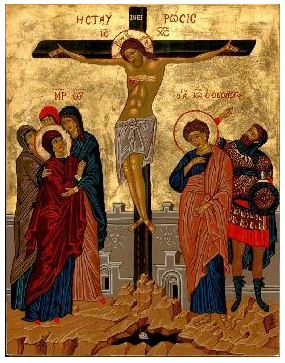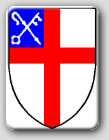OUR BELIEFS
In Word, Sacrament and Tradition the Anglican Catholic Church proclaims the continuing guidance of the Holy Spirit in the life and witness of catholic Christendom.
The early Church gathered inspired prophetic and historical writings, together with the Good News of Christ and the teachings of his disciples, to form The Bible which is the Word of God.
Under the guidance of the same Holy Spirit the Church in Holy Synod met for over four hundred years to resolve differing interpretations of biblical revelation. Oneness of Christian belief was declared to the Church through seven Ecumenical Councils whose teachings and credal statements are core beliefs.
The Apostles who were appointed by Jesus later appointed men in the Church to succeed them in their Apostolic Ministry. These men were called bishops and in the New Testament mention is also made of elders and presbyters who shared in the cure of the bishops. The Anglican Catholic Church maintains the Apostolic Ministry of Bishops, Priests and Deacons in an unbroken line of succession from the Apostles.
The Holy Spirit of God overshadowed the Blessed Virgin Mary and the The Word was made flesh in the person of Jesus Christ (Jn 1:1). Jesus continues to be present to His church through visible signs called sacraments and through which He brings the Grace of God to his people in the waters of Holy Baptism, in the bread and wine of the Mass, through Holy Oil and the Laying on of Hands.
OUR WORSHIP
The Word was made flesh in the person of Jesus Christ to redeem humanity and after His Passion, Resurrection and Ascension into heaven He remains with us in the Person of His Holy Spirit. In the visible and tangible Sacraments of the Church, Christ continues to come among us to continue His work of redemption. These truths are expressed in the worship of the Church using historic texts, rich symbolism and ritual, to proclaim the God who has renewed all of creation in his Son.
OUR MISSION
Our church is a family of believers committed to living the faith once delivered to the Saints (Jude 1:3). We believe that “Jesus Christ is the same yesterday and today and forever” Hebrews 13:8.
The tradition of the Anglican Catholic Church rejoices in the faith and witness of the Christian Church of every age and resolves to continue in the fullness of that faith in this age and that which is to come.
OUR INVITATION
Contact any of the diocesan clergy for more discussion. Share in the Liturgy of the Church with the clergy to see and hear the Word of God proclaimed and taken out into the world to witness to the faith of Christ crucified.
IMPORTANT NOTICE
In a recent report of the Courier-Mail newspaper and its fellow members of the News Corporation stable, it was mentioned that the group known as the Anglican Catholic Mission Community (ACMC) had been received into the Anglican Catholic Church (ACC) in 2010.
What was not mentioned was that this association had ceased about a decade ago, and that the original inclusion occurred due to the actions of a former Bishop Ordinary of this Diocese, Brian Iverach, whose increasingly irresponsible and surreptitious behaviour precisely in regard to this group led to his removal by the Province. In consequence, the ACMC left the ACC, with its leader of the time (Daniel Landy-Ariel) in his departing correspondence rejecting the authority of the ACC and applying a multiplicity of insulting epithets to its leadership. Similarly, when the Primate of the ACC, Archbishop Mark Haverland, had earlier refused to approve the rules and constitution of the ACMC because they made its “Rashan” unaccountable and gave him dictatorial powers, a torrent of abuse followed.
We were therefore somewhat surprised to hear that the ACMC had retained the name associating it with the ACC. It had, in the person of its leader, made it very plain that it rejected as worthless the jurisdiction and identity of this Church, making the retention of that name both mystifying and misleading.
It should also be noted that Bishop Iverach, in bringing the ACMC into the Diocese did not communicate to his Diocese the allegations of abusive conduct that had already become connected to the group, which members eventually had to discover serendipitously themselves via old media reports. We are saddened to learn that these earlier allegations may have only been the tip of the iceberg, both because of the harm done to the vulnerable and because, while there were and are doubtless many good Christian people in the ACMC whose desire to lead disciplined and simple lives as a religious community is admirable, manipulative and authoritarian systems that encourage a culture of cruelty and servile fear are always a betrayal of the Gospel. Insofar as these anti-Christian features may have characterised the ACMC, we call upon its leaders to repent publicly, apologise to any victims, and either dissolve the community or chart a new course for it: one founded on accountability to the wider Church, gentleness and spiritual freedom.
|



